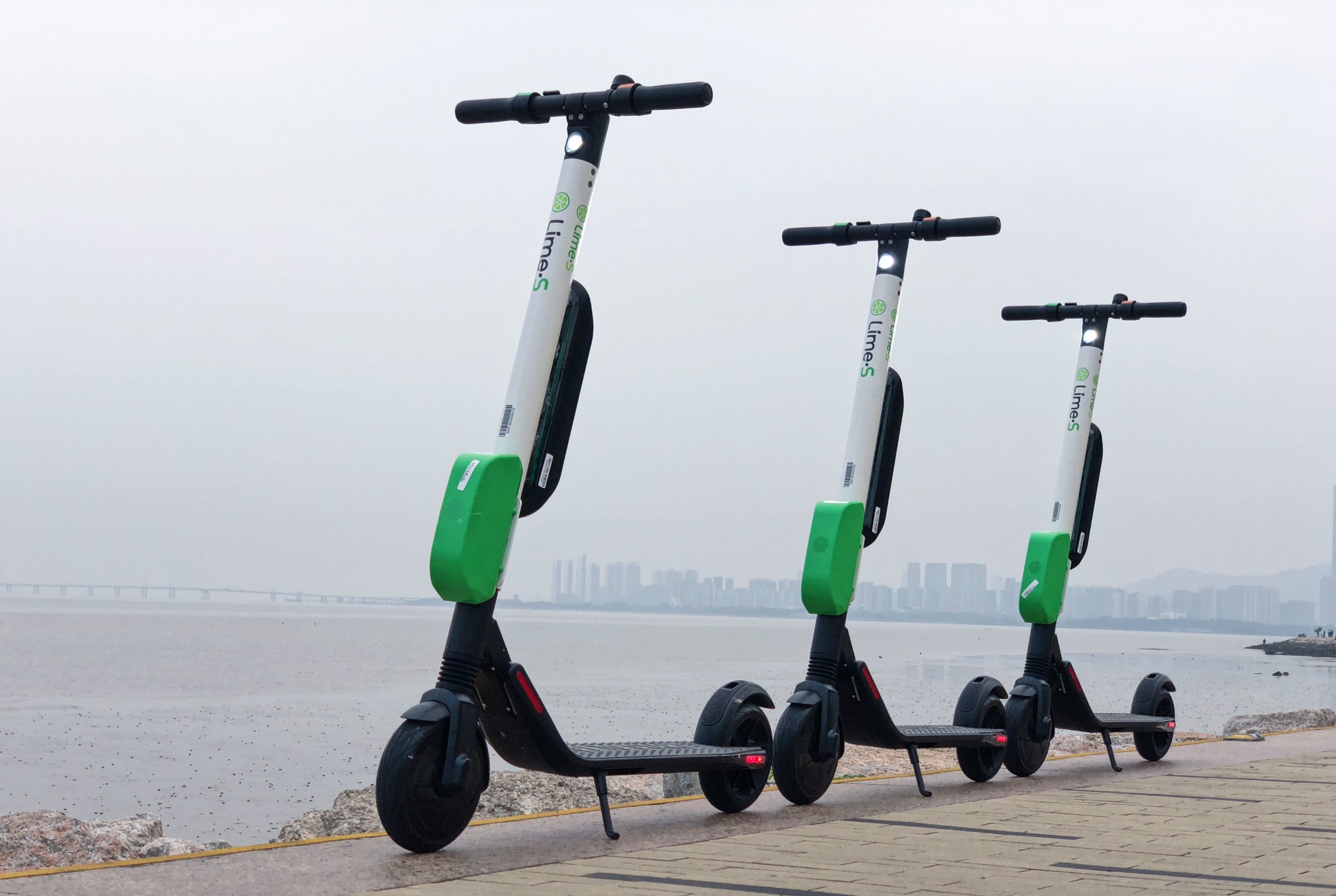Lime Bike Chief Programs Officer Scott Kubly was in town this week for the launch of the company's mini-bike-share program in Staten Island, but in a broad-ranging interview near our DUMBO offices, Kubly, who once ran the Department of Transportation in Seattle, was also jazzed about the company's e-scooters, which are deployed in many of the same cities where Lime currently operates bike-share (though sometimes with controversy, as Beverly Hills found out). I was, as you can see below, skeptical. Here are excerpts of that conversation:
Streetsblog: Why would cities want more e-scooters?
Scott Kubly: There is a lower barrier to using it. It’s not a bike. Most people know if they like to bike or not so they’re not willing to try, but scooters are new, so people are willing to try it out. A lot of times with bikes people say, "I haven't ridden a bike since I was a kid." But they've never seen an e-scooter, so there's no barrier like, "I don't know how to do that anymore" or "I haven't done it in so long." Instead, it's this thing that they've never used before so they'll try it.
I would have the opposite reaction!
What they then find out is that they’re easy, fast, and convenient. The other thing is, it's fun! You push off once or twice and there's a little throttle button and off you go. The top speed is 15 MPH. You're in a suit and you're not pedaling. You're just standing there.
So electric scooters are even more the future than bike share?
To us, shared and electric mobility is the future. The method will depend on the trip. A mile? A scooter is great. Three miles? An e-bike is great. If you want a little exercise a pedal bike. Why wouldn’t cities want them if they’re more effective at moving people from point A to point B? And, one of the best things is that we’ve actually seen ridership on our bikes go up when scooters are present in the market.
So private ownership is out in any event.
Increasingly. For us it’s not about ownership its about access. What’s the right mode at the right time versus, "I need to own this thing so it can sit idle 90% of the time." I think scooters help move us there. It's a much broader demographic on scooters. We find our shared scooters are being used about about four times more times per day than bike-share. We also find that they are great for for shorter distance rides, rather than take Uber or Lyft to get around, people are scootering. We found that over half our (scooter) customers in San Francisco would have taken an Uber, a Lyft, or a personal car. For a short distance trip, it is faster and cheaper than any other mode.
Sorry, but I would always take the bike, not the scooter.
That’s great and true for a lot of people. Here's what blew me away: During my first week on the job, I was in San Diego when we launched scooters there. We were out rebalancing the system and three guys in their mid-50s from Denver walked up and said, "We love these things. We were riding it last night and it's a blast." They were three fifty-something guys who didn’t strike me as likely bike riders, and I’ve spent enough time in the trenches of building bike lanes that I’ve got a pretty good eye for such things. But for some reason, they were on vacation in San Diego, and decide to jump on a scooter even though they would not likely use the bike share system that's right there. And, maybe next time they only find two scooters so one of them jumps on a bikeshare. So it’s bringing new people into micro-mobility.
So are e-scooters coming to New York?
We are focused on getting bike-share right in New York. But, if scooters came to New York it would increase the number of people that want protected bike lanes. I used to run a DOT and know how important bike lanes are. For creating safe streets and encouraging more people to bike. I also know how hard they are politically. I’ve started thinking about them as more of a low-speed lane for micro-mobility. Suddenly, you have a much broader constituency. When we found that some riders in San Francisco were riding on the sidewalk, we asked why. They said they didn't feel safe in the street. We asked, “If you had a protected bike lane, would you feel safe." And the vast majority gave it a hard yes.
You create a constituency.
For protected lanes, yes. If scooters have a lower barrier than bikes, but riders want the same protection that bikers do, doesn’t that build a larger constituency for better bike lanes? Here’s the thing: Our goal is not to get people off of bikes, it’s to get people taking short trips out of cars, and the more cities who have scooters, the more emphasis there will be on improving the safety for micro-mobility for everyone.
So the private sector has to lead the way to get the city to do the stuff that it should be doing to keep us safe?
Ideally you're working together. Collaborating on the stuff that will keep us safe.
But usually it's the activists, not the private sector.
True, but to us, it's a virtuous circle. Most bike-share customers are younger men. And that's not because young men want to bike more, it's because other people don’t feel as safe (along with several other factors). Happy riders become activists for safer streets, and safer streets help make more people want to ride, so yes, pushing for bike lanes fundamentally helps the business, too. Plus, the employees of Lime are passionate about improving urban mobility and creating safer streets.
Well, we certainly like safer streets.






